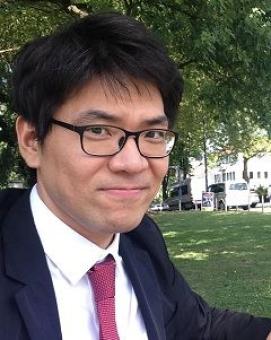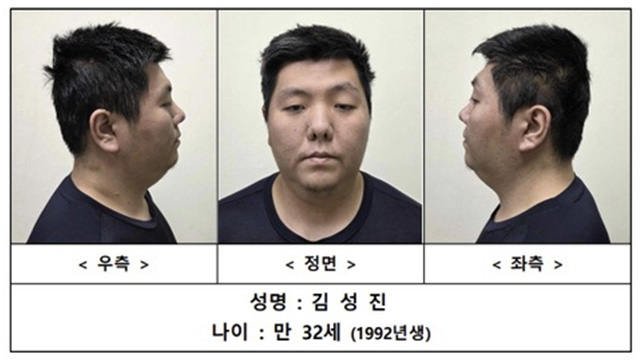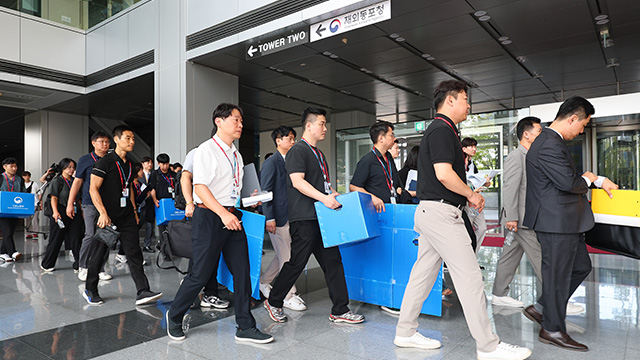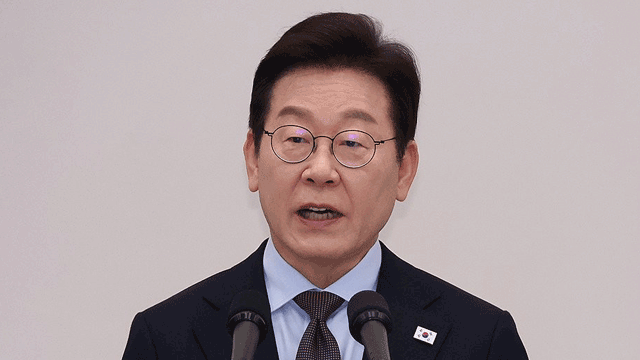[Anchor]
From Japan's perspective, today (8.15) marks the day they lost in the Pacific War.
Although Prime Minister Ishiba mentioned reflection, it is difficult to see it as a complete acknowledgment, and politicians who are being considered for the next prime minister visited the Yasukuni Shrine.
This is Hwang Jin-woo reporting from Tokyo.
[Report]
On the 80th anniversary of Japan’s defeat in the Pacific War, a memorial ceremony for the war dead was held in Tokyo. Prime Minister Ishiba mentioned “reflection,” stating that Japan must not repeat the horrors of war.
[Ishiba Shigeru/Prime Minister of Japan: “We must once again deeply reflect on the lessons and remorse of that war.”]
It is the first time in 13 years that a Japanese prime minister has used the word “reflection” on the day of defeat.
However, expressions such as “invasion” or “aggression” were omitted, making it hard to interpret this as direct remorse for the war or colonial rule.
In the past, Japanese prime ministers had expressed remorse while referring to harm done to neighboring countries, but since the return of Abe to office in late 2012, this practice has disappeared.
Even the “prime ministerial statement” traditionally issued every 10 years since the 50th anniversary was absent this time.
This is interpreted as a move conscious of Japan’s conservative bloc, which claims that apology and reflection have already been sufficiently expressed starting with the Murayama Statement in 1995.
Meanwhile, key figures considered potential successors—such as Koizumi Shinjiro, Minister of Agriculture, and Takaichi Sanae, former Minister of Economic Security and dubbed the “female Abe”—paid tribute at Yasukuni Shrine, where Class-A war criminals are enshrined.
Prime Minister Ishiba did not visit in person but sent a ritual offering instead.
Japanese media evaluated President Lee Jae Myung’s Liberation Day address as expressing a desire to improve Korea-Japan relations and offered positive outlooks on the Korea-Japan summit scheduled for next week.
This is Hwang Jin-woo, KBS News, from Tokyo.
From Japan's perspective, today (8.15) marks the day they lost in the Pacific War.
Although Prime Minister Ishiba mentioned reflection, it is difficult to see it as a complete acknowledgment, and politicians who are being considered for the next prime minister visited the Yasukuni Shrine.
This is Hwang Jin-woo reporting from Tokyo.
[Report]
On the 80th anniversary of Japan’s defeat in the Pacific War, a memorial ceremony for the war dead was held in Tokyo. Prime Minister Ishiba mentioned “reflection,” stating that Japan must not repeat the horrors of war.
[Ishiba Shigeru/Prime Minister of Japan: “We must once again deeply reflect on the lessons and remorse of that war.”]
It is the first time in 13 years that a Japanese prime minister has used the word “reflection” on the day of defeat.
However, expressions such as “invasion” or “aggression” were omitted, making it hard to interpret this as direct remorse for the war or colonial rule.
In the past, Japanese prime ministers had expressed remorse while referring to harm done to neighboring countries, but since the return of Abe to office in late 2012, this practice has disappeared.
Even the “prime ministerial statement” traditionally issued every 10 years since the 50th anniversary was absent this time.
This is interpreted as a move conscious of Japan’s conservative bloc, which claims that apology and reflection have already been sufficiently expressed starting with the Murayama Statement in 1995.
Meanwhile, key figures considered potential successors—such as Koizumi Shinjiro, Minister of Agriculture, and Takaichi Sanae, former Minister of Economic Security and dubbed the “female Abe”—paid tribute at Yasukuni Shrine, where Class-A war criminals are enshrined.
Prime Minister Ishiba did not visit in person but sent a ritual offering instead.
Japanese media evaluated President Lee Jae Myung’s Liberation Day address as expressing a desire to improve Korea-Japan relations and offered positive outlooks on the Korea-Japan summit scheduled for next week.
This is Hwang Jin-woo, KBS News, from Tokyo.
■ 제보하기
▷ 카카오톡 : 'KBS제보' 검색, 채널 추가
▷ 전화 : 02-781-1234, 4444
▷ 이메일 : kbs1234@kbs.co.kr
▷ 유튜브, 네이버, 카카오에서도 KBS뉴스를 구독해주세요!
- Japan’s reflection without apology
-
- 입력 2025-08-15 23:01:39

[Anchor]
From Japan's perspective, today (8.15) marks the day they lost in the Pacific War.
Although Prime Minister Ishiba mentioned reflection, it is difficult to see it as a complete acknowledgment, and politicians who are being considered for the next prime minister visited the Yasukuni Shrine.
This is Hwang Jin-woo reporting from Tokyo.
[Report]
On the 80th anniversary of Japan’s defeat in the Pacific War, a memorial ceremony for the war dead was held in Tokyo. Prime Minister Ishiba mentioned “reflection,” stating that Japan must not repeat the horrors of war.
[Ishiba Shigeru/Prime Minister of Japan: “We must once again deeply reflect on the lessons and remorse of that war.”]
It is the first time in 13 years that a Japanese prime minister has used the word “reflection” on the day of defeat.
However, expressions such as “invasion” or “aggression” were omitted, making it hard to interpret this as direct remorse for the war or colonial rule.
In the past, Japanese prime ministers had expressed remorse while referring to harm done to neighboring countries, but since the return of Abe to office in late 2012, this practice has disappeared.
Even the “prime ministerial statement” traditionally issued every 10 years since the 50th anniversary was absent this time.
This is interpreted as a move conscious of Japan’s conservative bloc, which claims that apology and reflection have already been sufficiently expressed starting with the Murayama Statement in 1995.
Meanwhile, key figures considered potential successors—such as Koizumi Shinjiro, Minister of Agriculture, and Takaichi Sanae, former Minister of Economic Security and dubbed the “female Abe”—paid tribute at Yasukuni Shrine, where Class-A war criminals are enshrined.
Prime Minister Ishiba did not visit in person but sent a ritual offering instead.
Japanese media evaluated President Lee Jae Myung’s Liberation Day address as expressing a desire to improve Korea-Japan relations and offered positive outlooks on the Korea-Japan summit scheduled for next week.
This is Hwang Jin-woo, KBS News, from Tokyo.
From Japan's perspective, today (8.15) marks the day they lost in the Pacific War.
Although Prime Minister Ishiba mentioned reflection, it is difficult to see it as a complete acknowledgment, and politicians who are being considered for the next prime minister visited the Yasukuni Shrine.
This is Hwang Jin-woo reporting from Tokyo.
[Report]
On the 80th anniversary of Japan’s defeat in the Pacific War, a memorial ceremony for the war dead was held in Tokyo. Prime Minister Ishiba mentioned “reflection,” stating that Japan must not repeat the horrors of war.
[Ishiba Shigeru/Prime Minister of Japan: “We must once again deeply reflect on the lessons and remorse of that war.”]
It is the first time in 13 years that a Japanese prime minister has used the word “reflection” on the day of defeat.
However, expressions such as “invasion” or “aggression” were omitted, making it hard to interpret this as direct remorse for the war or colonial rule.
In the past, Japanese prime ministers had expressed remorse while referring to harm done to neighboring countries, but since the return of Abe to office in late 2012, this practice has disappeared.
Even the “prime ministerial statement” traditionally issued every 10 years since the 50th anniversary was absent this time.
This is interpreted as a move conscious of Japan’s conservative bloc, which claims that apology and reflection have already been sufficiently expressed starting with the Murayama Statement in 1995.
Meanwhile, key figures considered potential successors—such as Koizumi Shinjiro, Minister of Agriculture, and Takaichi Sanae, former Minister of Economic Security and dubbed the “female Abe”—paid tribute at Yasukuni Shrine, where Class-A war criminals are enshrined.
Prime Minister Ishiba did not visit in person but sent a ritual offering instead.
Japanese media evaluated President Lee Jae Myung’s Liberation Day address as expressing a desire to improve Korea-Japan relations and offered positive outlooks on the Korea-Japan summit scheduled for next week.
This is Hwang Jin-woo, KBS News, from Tokyo.
-
-

황진우 기자 simon@kbs.co.kr
황진우 기자의 기사 모음
-
이 기사가 좋으셨다면
-
좋아요
0
-
응원해요
0
-
후속 원해요
0















이 기사에 대한 의견을 남겨주세요.